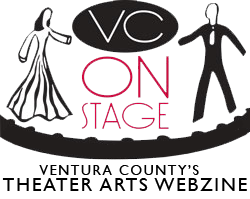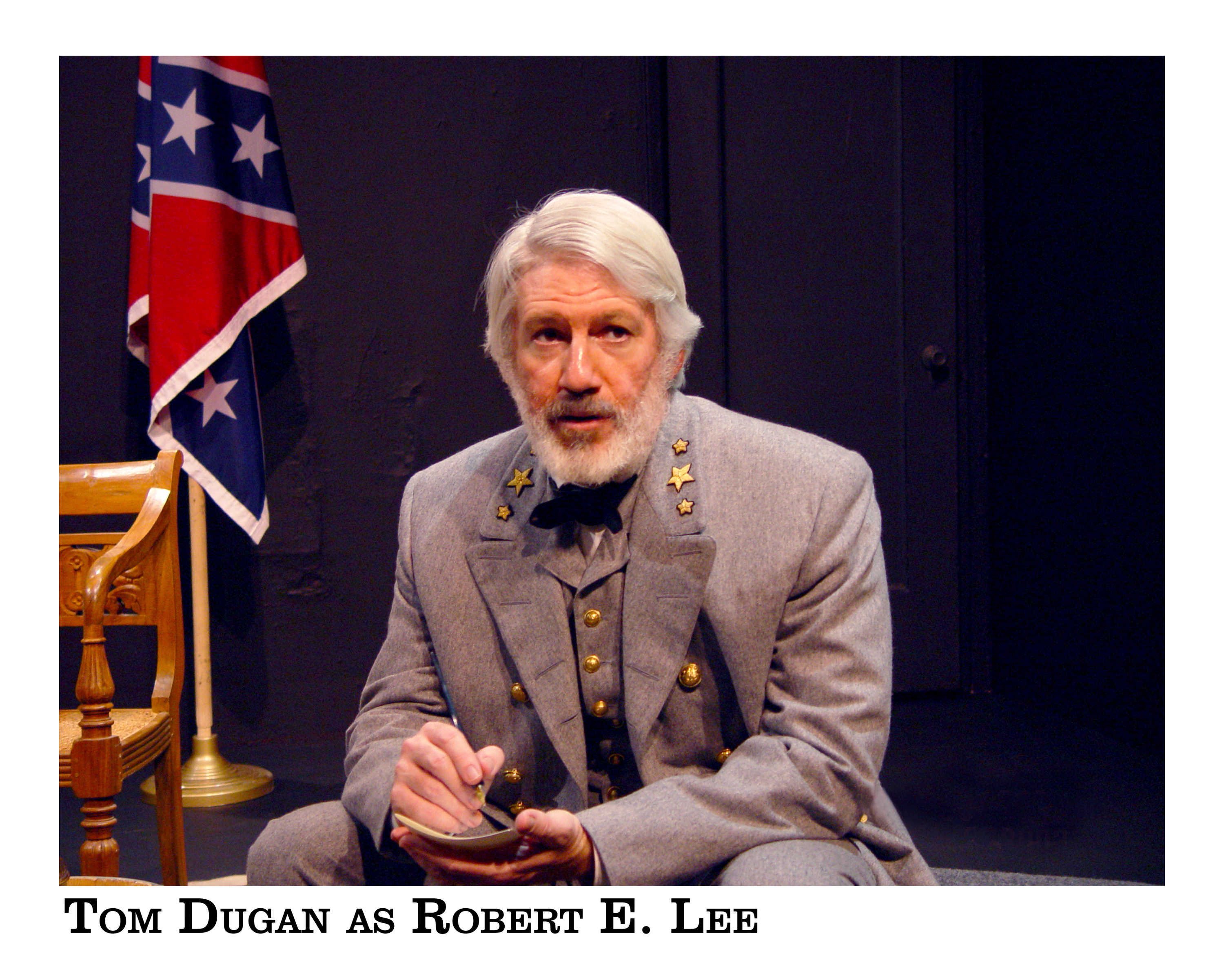Award-winning actor and playwright Tom Dugan is fast becoming “Mr. One-Man Show” in the American theater. His productions of “Oscar to Oscar” (a salute to the Academy Awards), “Frederick Douglass: In the Shadow of Slavery,” and “Wiesenthal” (about noted Nazi hunter Simon Wiesenthal) have won plaudits from audiences and critics alike. One of his most stirring productions, “Robert E. Lee: Shades of Gray,” in which he plays the complex and enigmatic Confederate general during the Civil War, begins a month-long run at the Rubicon Theatre in Ventura this Saturday. The play takes place as Lee is awaiting the arrival of Union General Ulysses S. Grant at Appomattox Court House, where he will surrender the Southern armies to effectively end the Civil War. The production commemorates the 150th anniversary of the Battle of Gettysburg. As Lee hears General Grant’s approaching footsteps, he warns against simplifying our nation’s story into a comforting novel of good versus evil, saying “Fictionalized history teaches later generations to long for the good old days, which never really were, and to despise the little good that is granted us in this present world.”
I spoke with Dugan about the show and his fascinating subject.
VCOS: The “one-man show” seems to be a favorite format for you. When and how did this come about?
TOM: This is my seventh one person play now, so I suppose it has become a favorite format for me. Although there is the practical aspect of keeping the cast small for touring purposes, the main reason I write solo shows is my fascination with the suspension of disbelief. All theater depends on the illusion of reality but I have found that these one-person historical plays create an even deeper suspension of disbelief. People have said to me over and over that after a minute or so they stop seeing the actor and start feeling that they are actually listening to the real person. That’s kind of magical, I think.
VCOS: Who are the subjects of some of your favorite one-man-shows that you’ve seen?
TOM: Harry Truman in “Give em Hell, Harry,” starring James Whitmore, Vincent Price as Oscar Wilde and, of course, Hal Holbrook in “Mark Twain Tonight!” jump to my mind immediately.
VCOS: What did you learn from these in putting on your own shows?
TOM: I learned that one performer can hold an audience’s attention if the material is compelling enough. Also that simplicity is your friend, which creates a sense of ease and comfort with the audience. This is essential.
VCOS: What prompted your selecting Robert E. Lee as a topic for your latest show?
TOM: This is actually the tenth anniversary of “Robert E. Lee: Shades of Gray.” It premiered at the Carpenter Center in Richmond, Virginia in 2003. When I learned that Lee was against slavery and quite pro-Union I was extremely intrigued about his story and I thought audiences might be as well. I found Lee to be a terrific role model and extremely articulate. He also had a dry sense of humor which I’ve tried to utilize in the play as well
VCOS: Although he was the leading general for the Confederacy, do you think he has been treated fairly by history?
TOM: I believe that each generation uses Lee to serve its own particular agenda – painting Lee as many things that he was not. Now, I think there is a more balanced appreciation of who Lee really was – a man of extraordinary discipline, a master military tactician, and a practical father and loving family man.
VCOS: What kind of research did you do to find out who Lee was and how his character acts?
TOM: Joel Goldes is my dialect coach and he showed me a realistic Richmond dialect that Lee probably spoke with. I then read tons of books that included firsthand accounts of Lee; things he said to people, how he behaved with his family, co-workers, etc. I wasn’t shy about finding the darker side of Lee either. Some books I read were not very flattering at all to him, but I made sure to put it all in the play. I’ve never met a human being who was perfect, and so Lee in this play has his faults as well.
VCOS: What was the most difficult thing about playing this role?
TOM: Lee was very refined and formal and I am sort of boyish and casual, so that was an adjustment. My friends might describe me as a goofball sometimes and these adjectives don’t come up very much in the life of Robert E. Lee.
VCOS: What other aspects of Lee’s personality did you learn about in researching material for this show?
TOM: In any serious play you absolutely need humor to give some kind of relief to the audience from time to time. Finding Lee’s sense of humor was gold; his letters to and from his children are filled with family memories and high times that they’ve shared and I tried to bring that to the show as well.
VCOS: Do you have other one-man-show ideas in mind for the future?
TOM: I’m just completing the script for The Ghosts of Mary Lincoln which will premier in GA next month; this completes my Civil War trilogy (Lee, Frederick Douglass – in the Shadow of Slavery starring Mel Johnson Jr. and Mary. My play Wiesenthal about the famed Nazi Hunter will have its Off Broadway premier this spring and while all that is going on I’m researching for my next play about Jackie Kennedy.
“Robert E. Lee: Shades of Gray” is directed by Jenny Sullivan. Opening night is this Saturday, September 7, at the Rubicon Theatre in Ventura. The show runs through September 29. For dates and show times, see the VC On Stage Calendar of Events.






No Comments